Moby Grape | Interview | Peter Lewis | New Album, ‘Imagination’
Peter Lewis of the legendary Moby Grape will release a new solo album, ‘Imagination,’ out June 16th via OMAD Records.
“We are all beings who want to live forever but know we won’t. Although this is a predicament everyone must learn to accept, the different ways in which we spend our time trying to cope with our mortality don’t always lead to a common sympathy between us, but to conflict and profound suffering. Yet in the end all we really have in the whole wide universe is each other and that is what this CD is trying to point out” – Peter Lewis
That comes through crystal clear on Imagination, a new collection of singular songcraft that could only spring from the creative consciousness of Peter Lewis. founding member of the legendary San Francisco rock group Moby Grape.
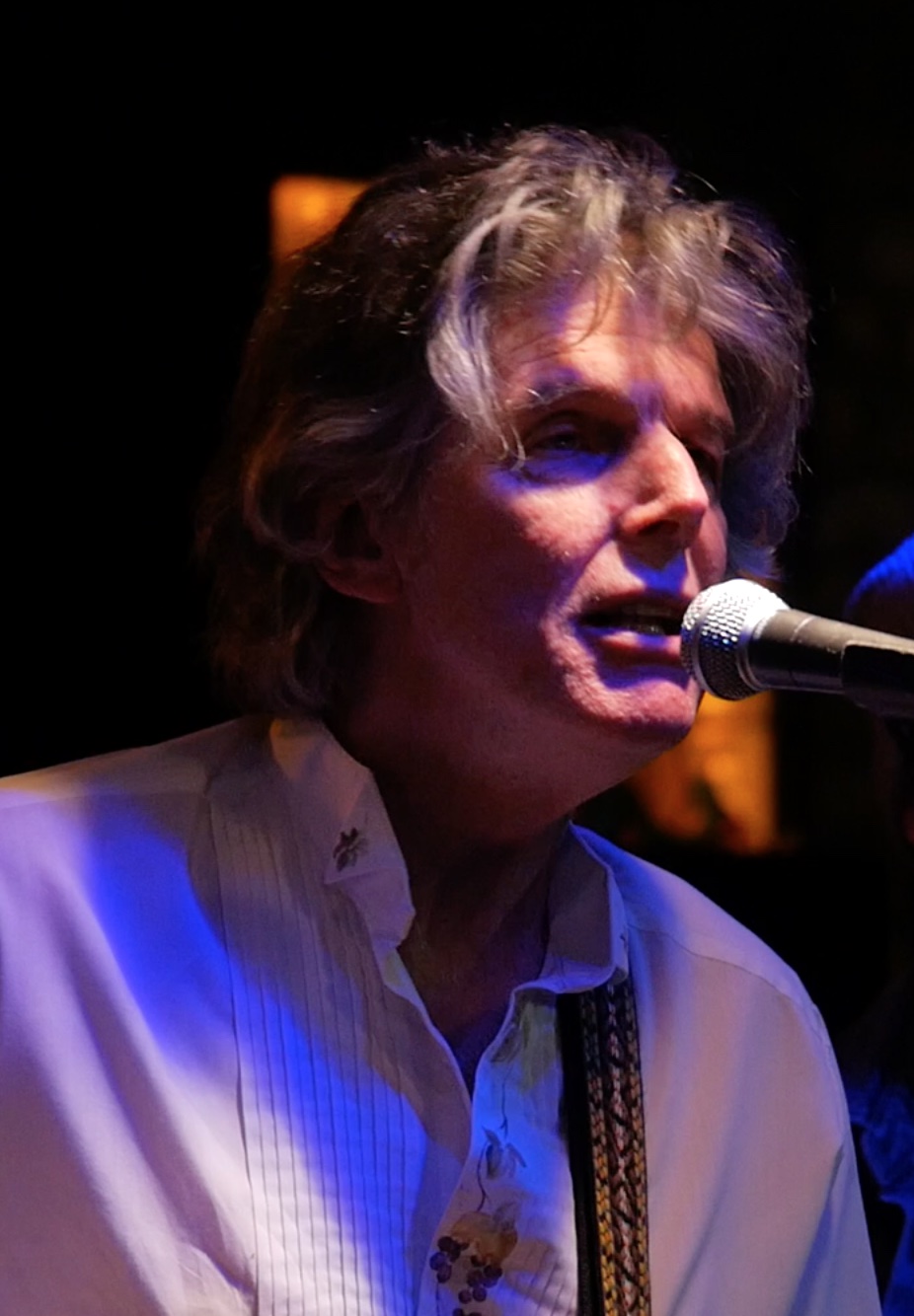
“My songs have all been inspired by personal experience”
It’s really wonderful to have you. Are you excited about your upcoming album, ‘Imagination,’ out June 16th? How much work went into it?
Peter Lewis: Well, to tell the truth, I have been thinking more about how the “rock world” that I have always felt so lucky to have even been a small part of seems to be disappearing before my eyes. First losing David Crosby, then David Lindley. Lindley’s dying was an especially hard hit since he was my cousin.
Anyway so far as the new CD is concerned, I feel grateful I was allowed to stay alive long enough to make it. ‘Imagination’ took over a year of much give and take between John DeNicola (of OMAD Records) and I to make.
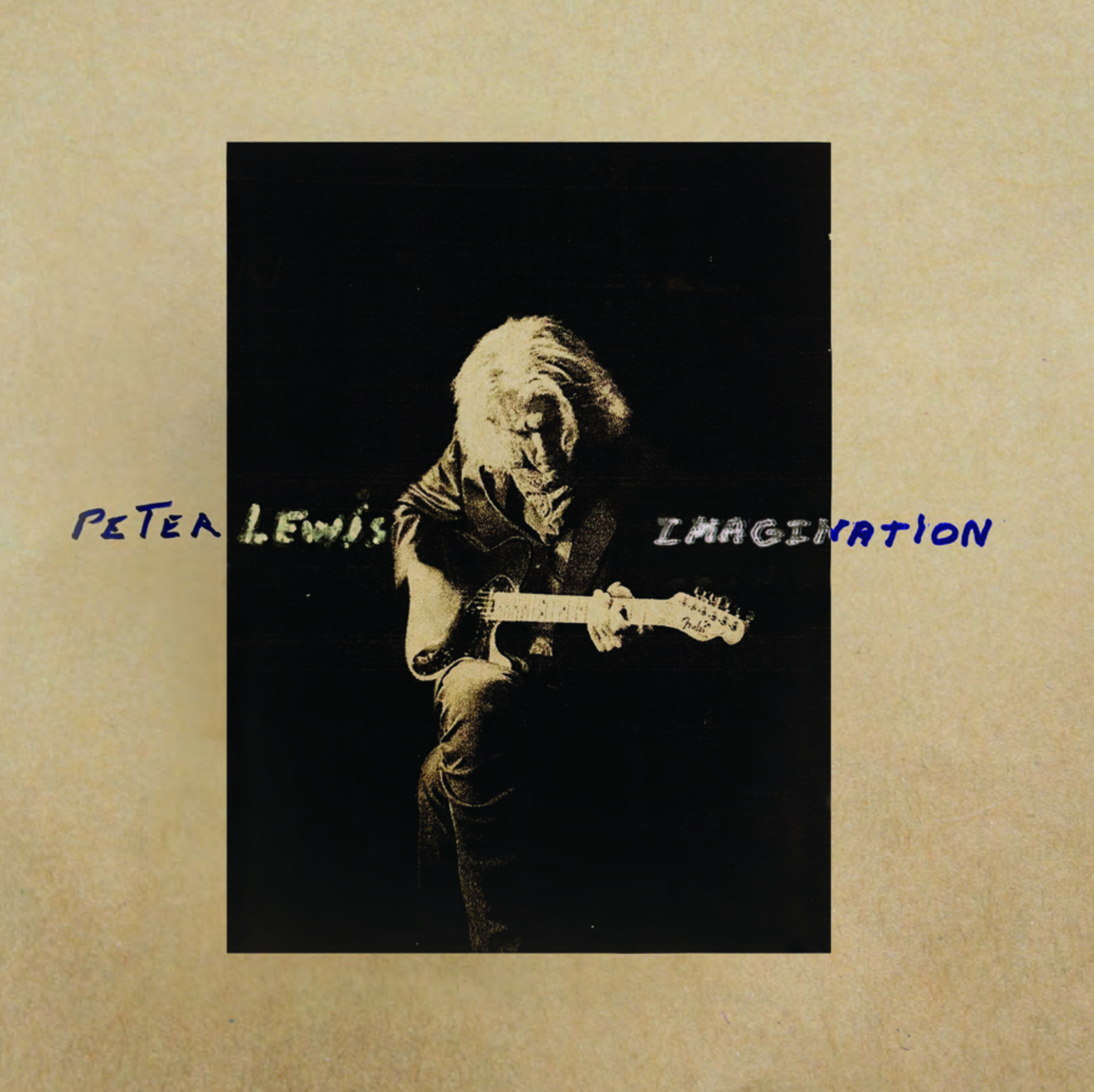
Everyone has its one approach when it comes to songwriting. What is yours? Was it any different this time around? Have you found the recent isolation creatively challenging or freeing?
My mother once introduced me to Sammy Cahn, mentioning that I was also a songwriter. He asked me if I wrote at least a song a day. When I said no, he just looked at me and smiled, as if to say “then you’re not the real thing.” I still don’t write one a day like Sammy did. He wrote on a schedule for scripted material. My songs have all been inspired by personal experience. In the beginning the only deadlines I had to meet were timed to either get on one Moby Grape album or another. Afterward, it has always been a case of having enough songs that led to making another solo record that might be worth the effort.
In the case of ‘Imagination,’ the only difference has been that five of the tunes are collaborations between me and John DeNicola. Even though we live in separate parts of the country, because of the internet, the recent isolation didn’t matter since we were able to do all the work in our own home studios.
“There will always be someone out there waiting to buy you out”
Your recently released single, ‘Path of Least Resistance’ is inspired by Moby Grape and management troubles that began in the 60’s and still hamper the band’s ownership over their success to this day. Would you like to elaborate to our readers the circumstances regarding these troubles?
The story starts just at the point the band was starting to get national attention and our old manager got us to sign the rights to the name Moby Grape over to him. The question is “why would those guys do that?” The answer is that we were still poor and if we didn’t sign, our old manager was threatening to stop giving two of the band members $100.00 a month to pay rent on their apartments in Marin County, where we were all located at the time.
Later, at the Monterey International Pop Festival, this ostensibly gave our old manager the right to confront the promoter, Lou Adler, with a demand for one million dollars in return for allowing us (“his band”) to be filmed for the movie Monterey Pop. Of course Adler refused and instead put us in a prime spot on Saturday night as was planned. He had us open the show Friday night while people were still trying to get settled. Consequently we fired our old manager on the spot and this is what began what turned out to be the longest running litigation in music business history.
In 2005, however we, the band members, won the name and publishing rights to our songs back from our old manager.
So far as the song ‘Path of Least Resistance’ is concerned, I would say it’s meant as a warning to all young upcoming musicians and artists. There will always be someone out there waiting to buy you out for a few dollars or with certain promises before you know what you’re really worth. My advice to you is; don’t trust them!
What it was like to work with John DeNicola of OMAD Records, who also produced the record?
First off, unlike Moby Grape’s old manager, John is both someone you can trust and someone, not just concerned with the business of music. He is a fellow musician and artist. In other words we made this record together. I don’t work for him and he doesn’t work for me. The way he produced ‘The Road to Zion’ and now ‘Imagination’ has been a process of give and take.
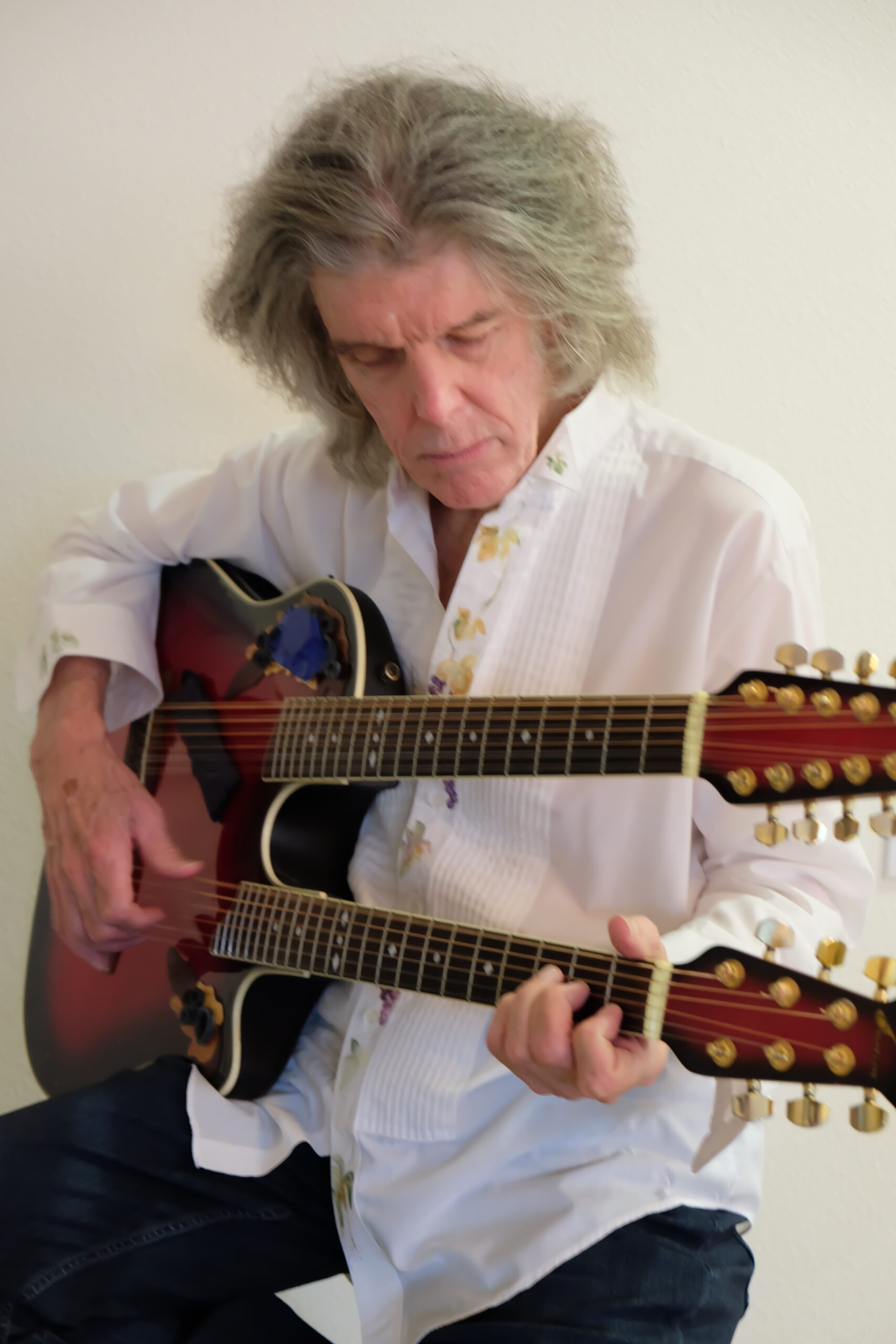
Can you share some further words about the recording process.
The songs on ‘Imagination’ that were co-written, started as musical and melodic ideas from John in New York. He sends them to me. I rearranged and added words to them . The songs written by me exclusively I sent him, usually just guitar and vocal. All the drum and most of the added guitar, bass and keyboard parts were done in New York by John, or his New York crew of studio players.
The exceptions were Johnathan McEuen’s lead guitar on ‘Frank Zappa’s Ghost,’ George Adrain’s lead on ‘Just like Sunshine,’ then Jeff Elliott’ trumpet and Randy Tico’s bass on ‘Saying Goodbye’. These were done in either mine or my daughter Arwen’s studio here in California.
John DeNicola: Getting to work with Peter Lewis is a really great experience. Moby Grape was a huge influence on me musically. Peter is really a sage, both as a musician and philosopher. He puts serious thought into all that he does. He is such a wonderful lyricist whose lyrics come from the heart not to mention his fingerpicking and his great musical ideas…A classic 60’s artist that amazingly is able to remain contemporary. He is always hoping to impart a song that people can relate to and maybe affect them positively. Our writing together has been pretty effortless and producing his music has been an honor.
“Growing sense of my own mortality”
There seems to be a certain concept that ties all those songs together, would you like to discuss it further?
Although there was no preconceived concept that inspired the new CD, I will say what guided me through the making of it was a growing sense of my own mortality. I say this since both my siblings died at 76 and I just turned 77. But just getting older than they did doesn’t mean I broke some kind of curse. Nobody lives forever. So I would say if there is a concept that ties all these songs together, it is about mortality, coming to terms with the past and what I still want to do with the time I have left in this world.
The album is the second release on OMAD Records, a follow-up to 2019’s ‘The Road to Zion’. Would it be possible to draw parallels between the two?
The one obvious parallel that comes to mind would be the songs ‘This Memory’ and ‘Saying Goodbye’ that appear on ‘The Road to Zion’ and ‘Imagination’ respectively. They were both written about losing the same person. Her name was Kristen Nelson, my first love. Unfortunately Kris was in love with the famous rock musician and hero of mine Rick Nelson. She wound up marrying him and that’s when I lost touch with her.
But after the heyday of Moby Grape, we reconnected and resumed our old friendship. When she passed away in 2018, I took it personally. There were others who may have been closer to her. Nonetheless, I had known Kris longer than almost all the other people in my life and this is what both of these songs I wrote about her are about; dealing with the loneliness that gets left behind after having to let go of someone we feel deeply understood by.
I would truly appreciate it if we can discuss some of the early days. Would you like to tell us how The Cornells got together? What sort of venues did you play and what did your repertoire consist of?
On my first day in high school I was talking to Charlie Correll, a guy I knew from a military academy we had both gone to. Charlie was a drummer in the marching band there. But before long he was telling me he had switched to a trap set and was starting a rock band. Then telling him of having taken up the guitar in New York for the past two years, got me invited to come over that weekend and “sit in.”
But before I joined up, Charlie’s band turned out to be just him and a neighbor of his, Bob Linkletter. But that’s how The Cornells started. Before a month went by two other players were added, Jim O’Keefe on sax and Tom Crumpler on bass. It was certainly not planned this way, but in the end, Tom was the only band member whose parents weren’t celebrities. Bob was the son of Art Link Letter, a famous TV and celebrity host. My mother was Loretta Young, a well known actress. Charles’s father was the creator of the original Amos ‘n’ Andy radio show and Jim’s father was the actor Dennis O’Keefe.
At first we were pretty raw. But through the efforts of our new manager and Charlie’s best friend Steve Jahns, we got many gigs. Through much practice, both on our own and as a band, The Cornells got better and were soon booked every weekend. We played everything from school dances to beer bars for the next five years. But like most of the teenage bands in those days we played almost all instrumentals tunes that ranged from surf music to popular standards like ‘Misty,’ ‘Autumn Leaves’ and top forty stuff.
“I’m still becoming a musician”
What was it like for you to grow up with famous parents? Was there a certain moment in your life when you knew you wanted to become a musician?
The best way I can describe my childhood would be to call it privileged. However I didn’t know this until about the third grade. That’s when I was allowed to visit other kids’ houses who didn’t live in the middle of Beverly Hills and have their own swimming pools and tennis courts.
So far as the fame of my mother is concerned, my brother, sister and I were mostly shielded from it. One exception that comes to mind was when I was about eight years old. Our parents had taken my brother and I to New York. We went by train and were just getting off in Grand Central station when some fan noticed my mother and started yelling out her name.
The next thing I remember was being surrounded by a whole crowd of excited people all begging for her autograph. She tried explaining that she didn’t sign autographs when with her family. But the crowd wouldn’t move and began turning into an angry mob. I remember my father making one attempt to push our way out. But he backed off when someone pulled a knife and then there was the sound of police whistles.
Although we were spared that day, I came away knowing my family could not protect me against anything and everything there is to fear in the world.
Bob Dylan says in the Scorsese Documentary that as long as you keep yourself in a state of becoming you’ll sort of be OK. I’m not sure he was talking just about musicians. But as far as your question about a certain moment in my life when I knew I wanted to be one is concerned, I would say this. Wanting to become a musician is not something I remember knowing. Before I could ride a bike I would spend hours plunking at the big grand piano we had. Later I was given piano lessons. Rock and roll along and I took up guitar. Later getting to meet Elvis Presley and then Ricky Nelson pointed me in a direction. I’ve been heading in that direction ever since. But countless hours of practice and playing later, I’m still becoming a musician.
How did you originally meet Bob Mosley? How do you remember the first time all the members of Moby Grape played together? What was Katz and Spence like in the beginnings?
Bob Mosley had recently quit a band called The Joel Scott Hill Trio and been replaced by Lee Michaels. About this time my band, Peter and The Wolves, was at Gazzarris on the Sunset Strip where one Sunday afternoon Lee and The Trio’s drummer Johnny Barbetta came in to check me out. Somehow this led to meeting Joel Hill just as Johnny Barbetta was leaving to join The Turtles and Lee Michaels quit.
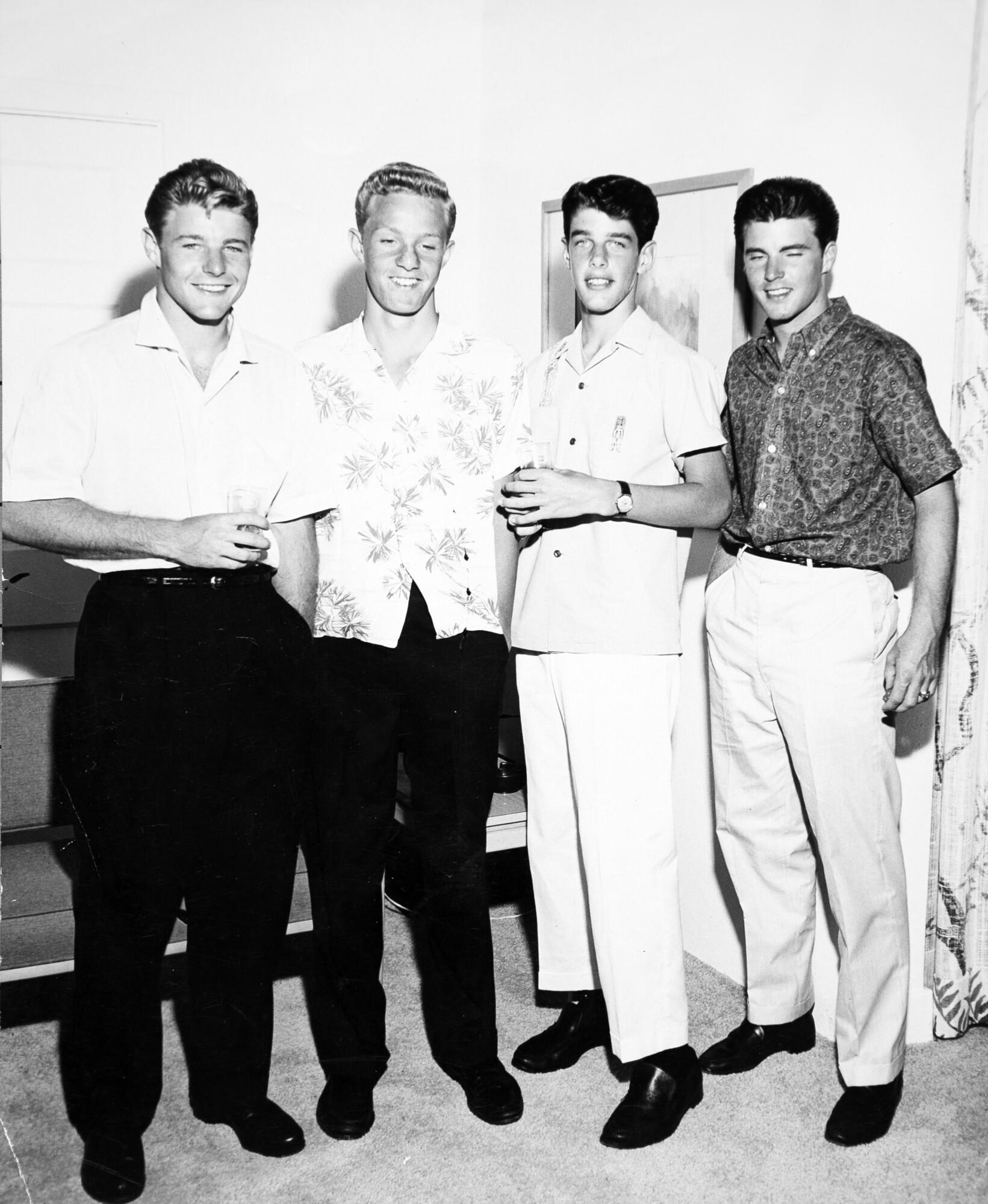
But instead of replacing them, Joel wanted to start a band that did original material and so did I. Joel recruited a drummer but we had no bass player. At this point he brought Mosley’s name up but said, “he’s crazy.” My response was “that doesn’t matter, it’s the 60’s’’… Mosley was in Hollister when Joel called him. But he flew down to meet me and we hit it off.
Meanwhile Mathew Katz, ex-manager of The Jefferson Airplane was in town. He was looking for musicians to play with Skip Spence who had just got fired for missing too many band practices. It was Bob Newkirk, our drummer, who brought Katz to one of our rehearsals. They had met when Newark auditioned for the job Spencer Dryden got, replacing Skip as the Jefferson Airplane’s new drummer.
The first time I saw Katz, he was standing in a shadowy corner of the rehearsal studio we practiced in. He always wore black, had a black goatee and straight black hair, combed over a skull shaped head to a duck tail in the back; very beatnik looking. The next morning I got a call from Newark saying that Katz liked what he heard and wanted to meet with us about putting our band together in San Francisco.
Joel didn’t like Katz and stayed in L.A. But the rest of us took the bait. Mosley got there first, but I drove up to Newkirk. It was night-time when Skip opened the door of Katz’s office at the address we were given. Skip and I looked at each other for a moment and then before saying a word, he grabbed me in a bear hug and said: “welcome to the promised land.” I soon found out although he played drums with the Jefferson Airplane, Skip really was a guitar player who wrote really cool songs. In the end, Newkirk went back to L.A. because Skip didn’t like his vibe and we got Jerry Miller and Don Stevenson. That first night we all played together, I would call it magical. But a better word might be prophetic.
I guess the chemistry was undeniable. Were the songs born out of jamming or what was the process like for the band?
I think in order to survive as individuals in a society, everyone has to create some kind of interest in themselves. The songs we were writing in Moby Grape were born in the process of trying to do just that; in other words, to make ourselves interesting.
I heard Bob Neuwirth say in a documentary about Dylan once, that the defining question in the 60’s about any new artist was, “does he have anything to say?” We all understood that in our time of show business, this was the biggest challenge we faced.
We had five songwriters to contribute. So there was no lack of material. We were all competent players and could rock with the best of em’. But in San Francisco, musicians in those days were expected to be part of the social revolution taking place and ‘Naked, If I Want To,’ ‘Hey Grandma,’ ‘Fall On You’ and of course ‘Omaha’ in particular were all designed not just to define, but to actually turn ourselves into living examples of that.
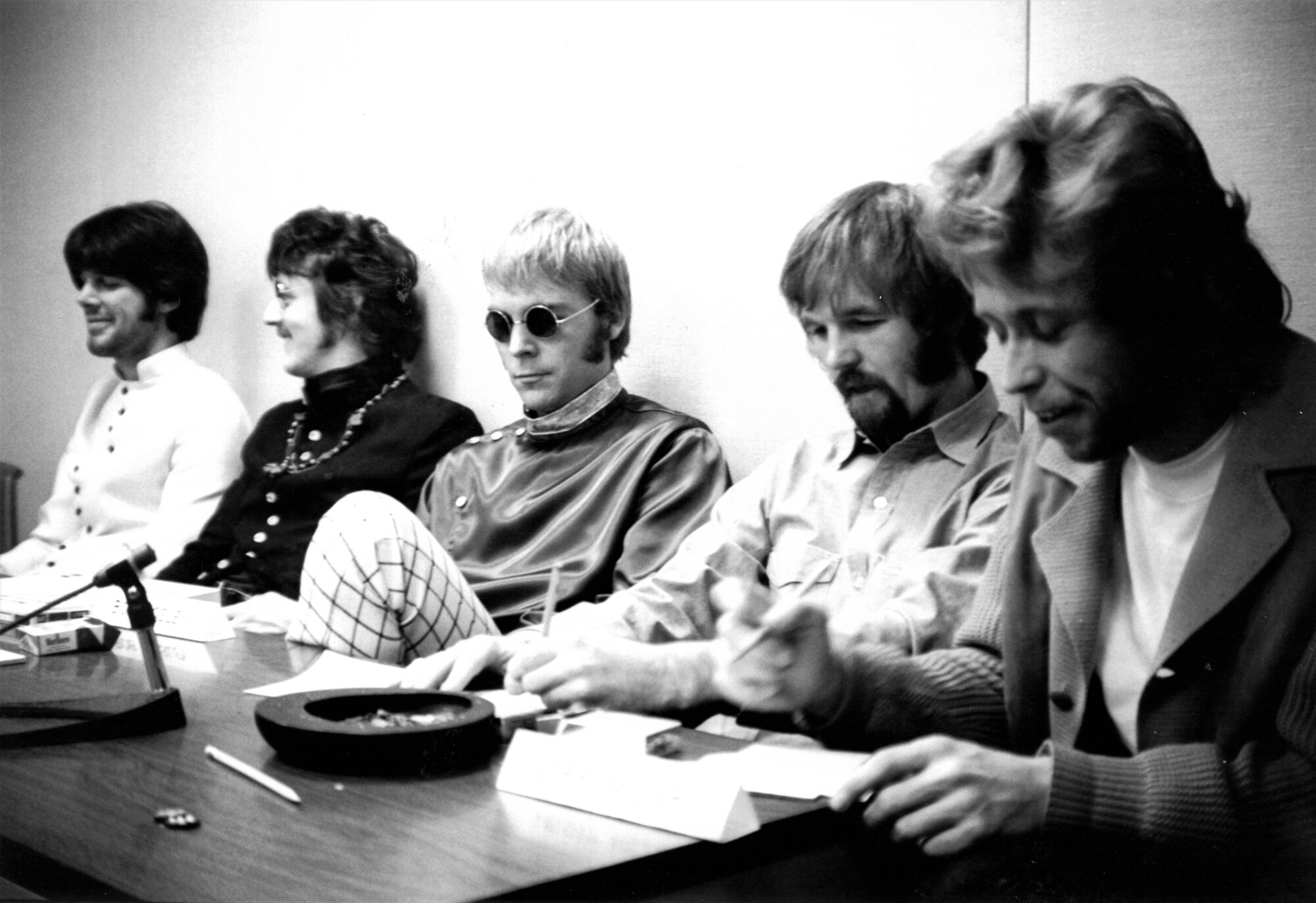
Would love to hear about the Moby Grape debut album.
The first recording we did was with Paul Rothschild. Paul wanted Moby Grape and was a staff producer for Electra Records. Paul finally signed The Doors and in the end we went with Columbia. This was due to their staff producer David Robinson’s promise to protect us from our old manager, who we had fallen out with.
So far David had only produced comedy albums for Phillis Diller, a stand up comedian. But if signing Moby Grape gave his standing a huge boost at Columbia, it also put him under pressure to prove himself. So you might say in the studio, the combination of his ambition and our intense desire to carve out a place for ourselves in the rock music scene created a critical mass.
It took us only two weeks to finish. But listening to the playback, I remember thinking we had surpassed my expectations. The mixing was done in New York by David Rubinson, Skip and myself. But to spite the adulation we got from Clive Davis and all the other high ups in New York, on the flight home Skip and I were subdued. It was as if we were both unsure about how to sustain the great outpouring of energy it took to make that record and in some way knew the apex of our Moby Grape experience was already over.
I think most people would agree that in a prophetic sense, this was us looking into the future. Nonetheless, the actual making of our debut album still is and most likely always will be the highlight of my life in music.
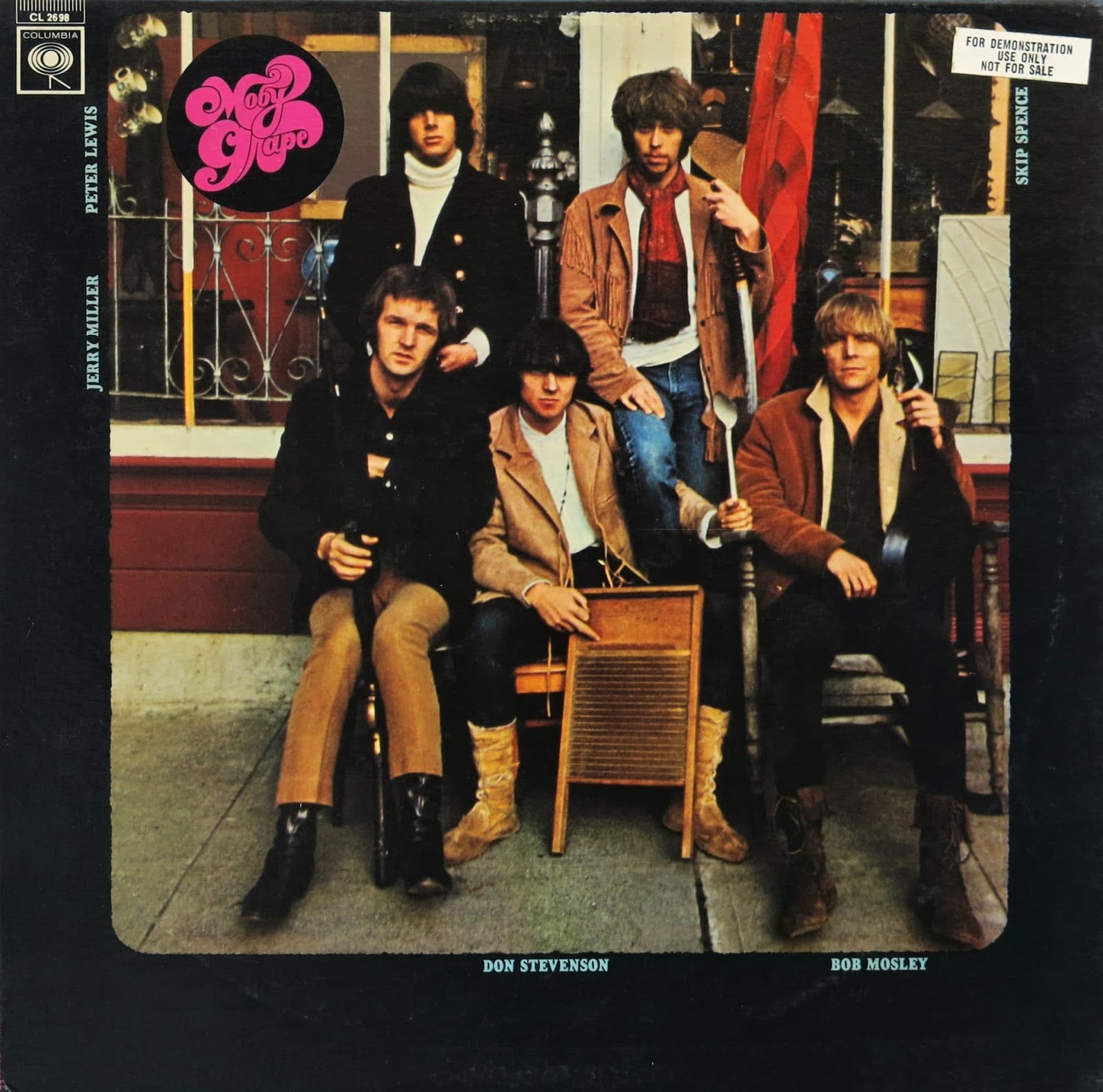
Would you mind sharing a bit about the later Moby Grape albums? What runs through your mind if I would play you again ‘Wow,’ ‘Moby Grape ’69,’ ‘Truly Fine Citizen, ’20 Granite Creek’?
I will let the music speak for itself here. But to me, those last three we did on Columbia, have always represented a spirit of separateness that was disconnecting the band members after making our first record. I like some of the songs on all these albums. But losing Skip during the making of ‘Wow’ and then Bob After 69’ makes them sound less like Moby Grape.
As far as ’20 Granite Creek’ is concerned, what I hear is not so much a reunion of the band members trying to recapture their old chemistry, but a consortium of song writers who each want an equal number of songs on the record. But again there are songs I like on ’20 Granite Creek’.
“I still remember the rush it gave me when the great David Crosby stuck his head inside our dressing room after hearing us and said “Wow!” I never told him, but that’s why we called our second record ‘Wow’.”
Looking back, what was the highlight of your time in the band? Which songs are you most proud of? Where and when was your most memorable gig?
For me the whole history of the band was a highlight. Some of it may have been exhilarating and some a disappointment. But feeling so much more fully alive after Moby Grape than I did before still makes it all seem worthwhile. I got the chance to turn even my downers into songs that people might listen to and even identify with. As an artist I consider this a great privilege.
I’m not sure which of my songs I’m most proud of. But I do know the ones I truly wish had been left in the can. One in these in particular is the song ‘Now I Know High’. It appears on ‘Truly Fine Citizen’. I don’t know what I was thinking when I pulled it out in front of our then producer Bob Johnson. He had just finished Dylan’s ‘Nashville Skyline’ and I guess he let that song get on the record hoping for the best, like we all were at that time. But if there was ever a tune of mine that got out there while it was still half baked, ‘Now I Know High’ it is.
I can’t speak for the other band members, but my most memorable gig was The Byrds, Moby Grape and Andrew Staples concert, 02/04/1967 at the Winterland Ballroom, San Francisco. Not only was it the night I got to meet the actual agents of change in my life for the better, it was the best live performance Moby Grape ever gave. I still remember the rush it gave me when the great David Crosby stuck his head inside our dressing room after hearing us and said “Wow!” I never told him, but that’s why we called our second record ‘Wow’.
And what would be the craziest gig you remember?
I can’t remember whether this was 67’ or 68,’ but It was in Seattle at night. Sonny & Cher, Vanilla Fudge and Glen Campbell were also on the bill. The venue was some kind of outdoor aquatic events facility. It was Summer time and there was a big pool in front of the stage, separating it from the audience on a hillside directly beyond.
The weirdness began when Sonny and Cher showed up without a band and asked us to back them up during their set. Well, that was not going to happen. But it being Jerry and Don’s hometown, they knew every musician in Seattle. So all of us pile into a rental car, (Sonny and Cher included) and go looking for a band to back them up. This took about two hours going from door to door. But finally we found enough people that could read Sonny’s charts to put a four piece group together for them.
When we got back, Glen Campbell was already done playing (solo) and Vanilla Fudge was in the middle of their set. As it turned out, since they both had the same instrumentation, it was decided that Vanilla Fudge would let the band we found to back up Sonny and Cher use their equipment.
This kept the show going. But Sonny and Cher had a shaky set and left us a very restless audience. So “to save the night,” in his words, it was Skip’s idea that after playing our last song, we should all take our clothes off and jump in the pool in front of the stage.
Someone could have asked him what the point of this would be. But I remember assuming this was just another one of his insane suggestions that he would not follow through with. But I was wrong. Sure enough, after the last chord of ‘Omaha,’ off comes his shirt, pants, shoes and everything underneath.
I guess not to be outdone, Mosley goes next. Except for leaving our underpants on, Don, Jerry and me are also in the water a second later. However long this took, the kids on the hillside are now all on their feet cheering and screaming when I hear the sound of sirens approaching.
But we figure if we stay in the water, instead of having to get their guns wet, the cops would probably just wait till we got out to arrest us. But then a van with police markings pulls up and some guys with wet suits climb out. Now the kids on the hillside are booing.
At this point I thought we were done for. But instead of just booing, suddenly all the kids are moving down the hillside and jumping in the pool. There’s maybe two hundred splashing bodies around them and the guys in wetsuits can’t get to us. Somehow, me and the other band members climbed back up on the stage, put our clothes on and escaped to the airport without being arrested before we got out of town.
May I ask if all of you experimented with psychedelics?
Sure we experimented with psychedelics. We were like everybody else who wanted to be different from the people who were running our world in those days. I’m talking about the war mongers and bigots who presented themselves as God fearing patriots. We lived in fear of them killing us all in a third world with their endless fighting over money and power.
Using psychedelics was my way of seeing how far away I could get from all that. I’m sure the other band members would agree that this would apply to them as well. But nobody in Moby Grape was dropping acid all the time and we never did it all together; either for a live performance or in the studio. On the other hand it got in the music. In fact ‘He’ (my one and only song on the second album) is about the first time I took acid after our performance at the Monterey International Pop Festival.
What are some of the strongest memories from working on your debut solo self-titled album?
When I went to work with John McFee on it, I had been all but out of the music business for ten years. This was in part because of being reduced to playing bars, where using the name Moby Grape would go under the radar of our old manager, also being on the verge of burning myself out with crazy living was a major factor. However during my absence, I did manage to get myself married, have two kids, earn a bachelor’s degree in studio art from UC Santa Barbara and then move to the Santa Ynez Valley.
How I met John was through a young woman landscaper who was putting a lawn in at the new house I bought. After hearing that I was a musician, she told me about also working for John McFee and then took me over to meet him.
As fate would have it, not long after this I was offered a chance to make my first solo record. Knowing he was a long time fan of Moby Grape and also a great musician, I asked John to produce it.
It took us two weeks to complete the project. Afterwards I remember thinking to myself that I might have finally become a real song writer. Maybe this was because I always seemed to have second thoughts about the songs I had written in Moby Grape. But the new tunes on my first solo CD sounded complete to me, as if there was nothing left in them to rearrange, or add something to.
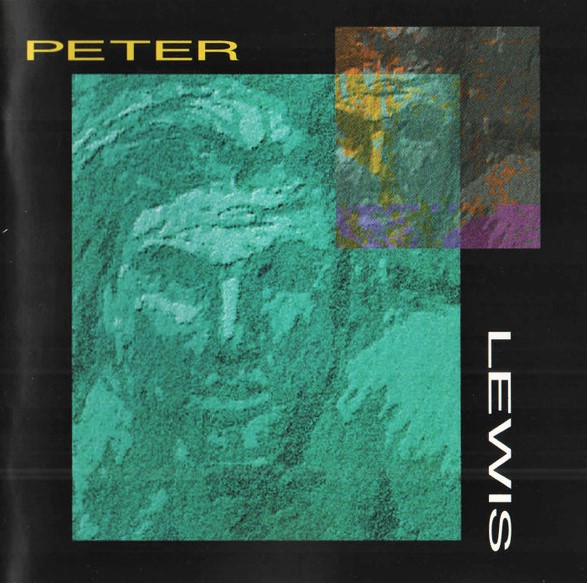
What are some of the most important players that influenced your own style and what in particular did they employ in their playing that you liked? What are some fingerpickers that inspired you?
I would have to say the most important was Joe Maphis. Joe was a regular on the weekly country music TV show Town Hall Party. I watched it every week religiously just to see him play. What fascinated me about him was that Instead of depending on a rhythm guitar player to back him up while he played solos, Joe played his own rhythm.
I was just learning how to play guitar then. As it so happened, Joe Maphis was managed by the same man that handled Art Linkletter, the father of Bob Linkletter from The Cornells. Art was a very nice man and somehow arranged to have Joe Maphis show up at one of our band practices. It was there that I saw how he was able to play his own rhythm while soloing. Instead of using bar chords, he used his thumb to nail down the sixth sting, allowing him four instead of just three fingers to play the notes. In the meantime Joe used a flat pick to comp along.
James Burton also used his thumb to fret the sixth string, a flat pick and fingers to pick out leads and rhythms that could sound like two guitars at once.
Of course the grandmaster of us all is Chet Atkins. Chet used a lot of bar chords, a thumb pick to give him more freedom in his right hand. He was the virtuoso that every finger picker I know looks up to.
In my generation, two musicians I admire and who might be affiliated with the style of Chet Atkins would be the late Zal Yanovsky and John Sebastian of the Lovin’ Spoonful. To my ear, it is not only in terms of their technique, but the note choices they made as players. When I hear the Lovin’ Spoonful, it always makes me think. Now there’s the kind of music Chet Atkins would have made if he had a rock band.
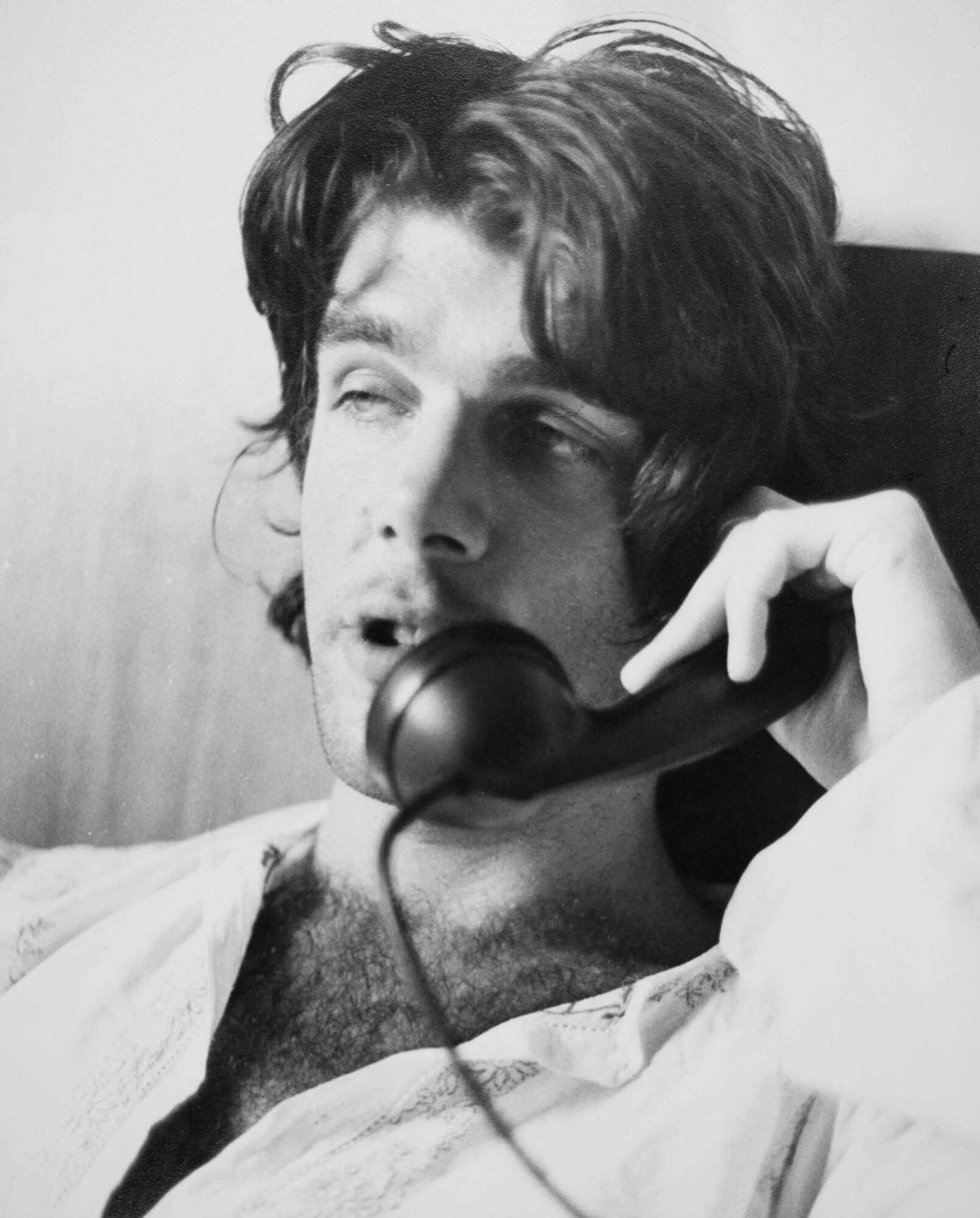
Any question about my favorite guitar players would not be complete without including Roger McGuinn. The Byrds first record was just on the market and already had me captivated. The songs spoke for themselves. Their vocals to me were a light in the darkness. But the sound of that Rickenbacker 12 string was more than something new to believe in musically. I had to see it.
A few days later I got my chance. I found out The Byrds would be playing at Ciros on the Sunset Strip. For that whole night I stood right in front of McGuinn watching his hands. For anybody who has ever handled a Rickenbacker 12 string you will know what I mean when I say there is not a lot or room between each set of strings. Yet McGuinn didn’t miss, or play a wrong note. What I noticed most was how only the fingers on his right hand hardly moved to create a cascade of crystal clear notes. His transitions between chords seemed less and when he did strum, it was even all around. In other words there wasn’t one mistake and the intent it must have taken to put on a display like that is something I have been trying to muster up ever since.
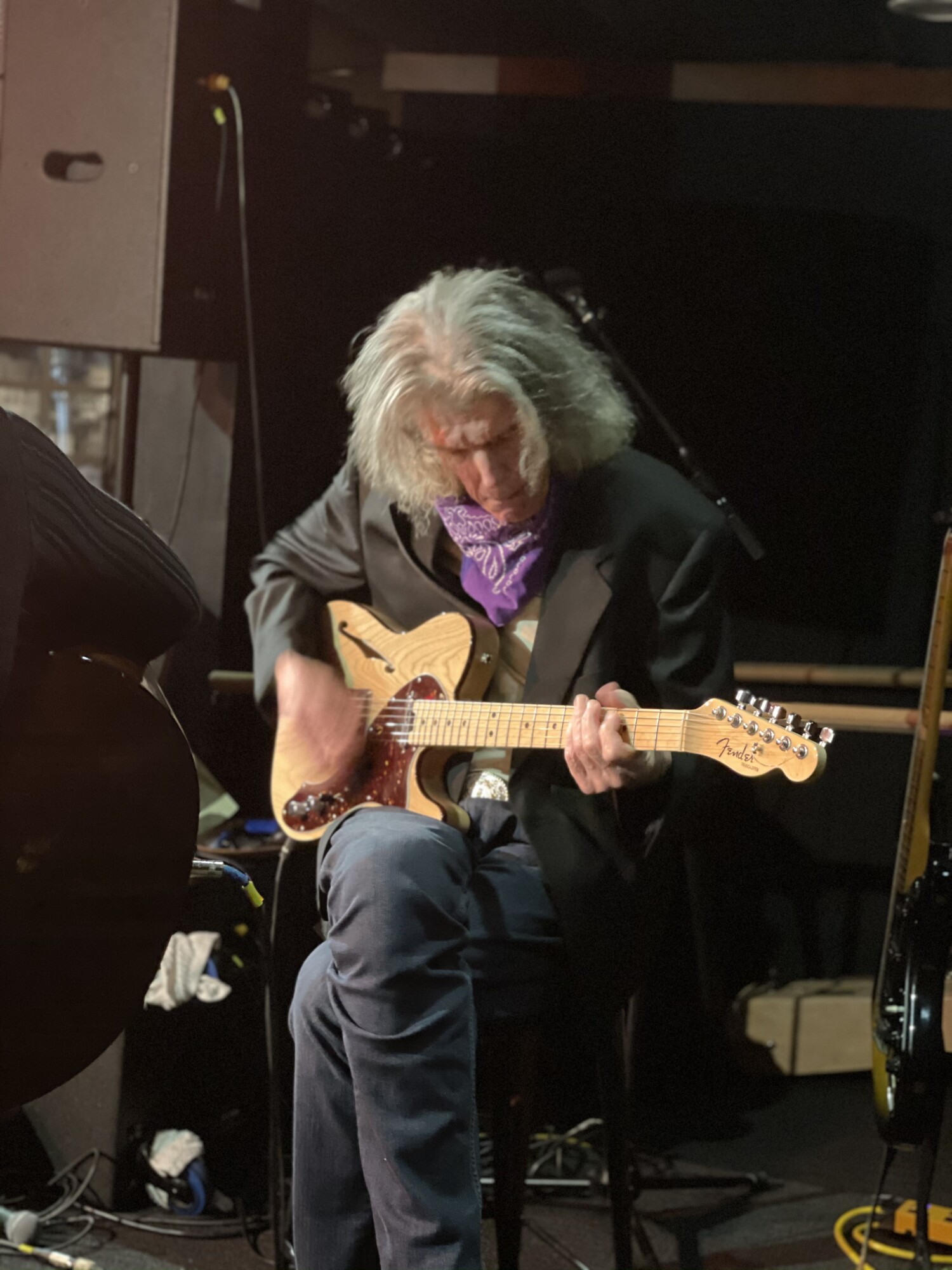
Thank you for taking your time. Last word is yours.
My good fortune is to be surrounded by people who love me. But interactions between people are in constant flux and nobody can completely control who or what might unexpectedly show up in their lives. With this as a starting point I wanted to consider in this new album, the possibility that the stronger they grow, the more our dreams become the future and our waking lives the battlefield on which to keep them from becoming nightmares. My personal weapon of choice here, as it always has been, is my own imagination.
Klemen Breznikar
Headline photo: Moby Grape Promotional Photo | Credit: Peter Lewis archive
OMAD Records Official Website / Facebook / Instagram / YouTube
Moby Grape | Interview | Don Stevenson | “The chemistry was undeniable”

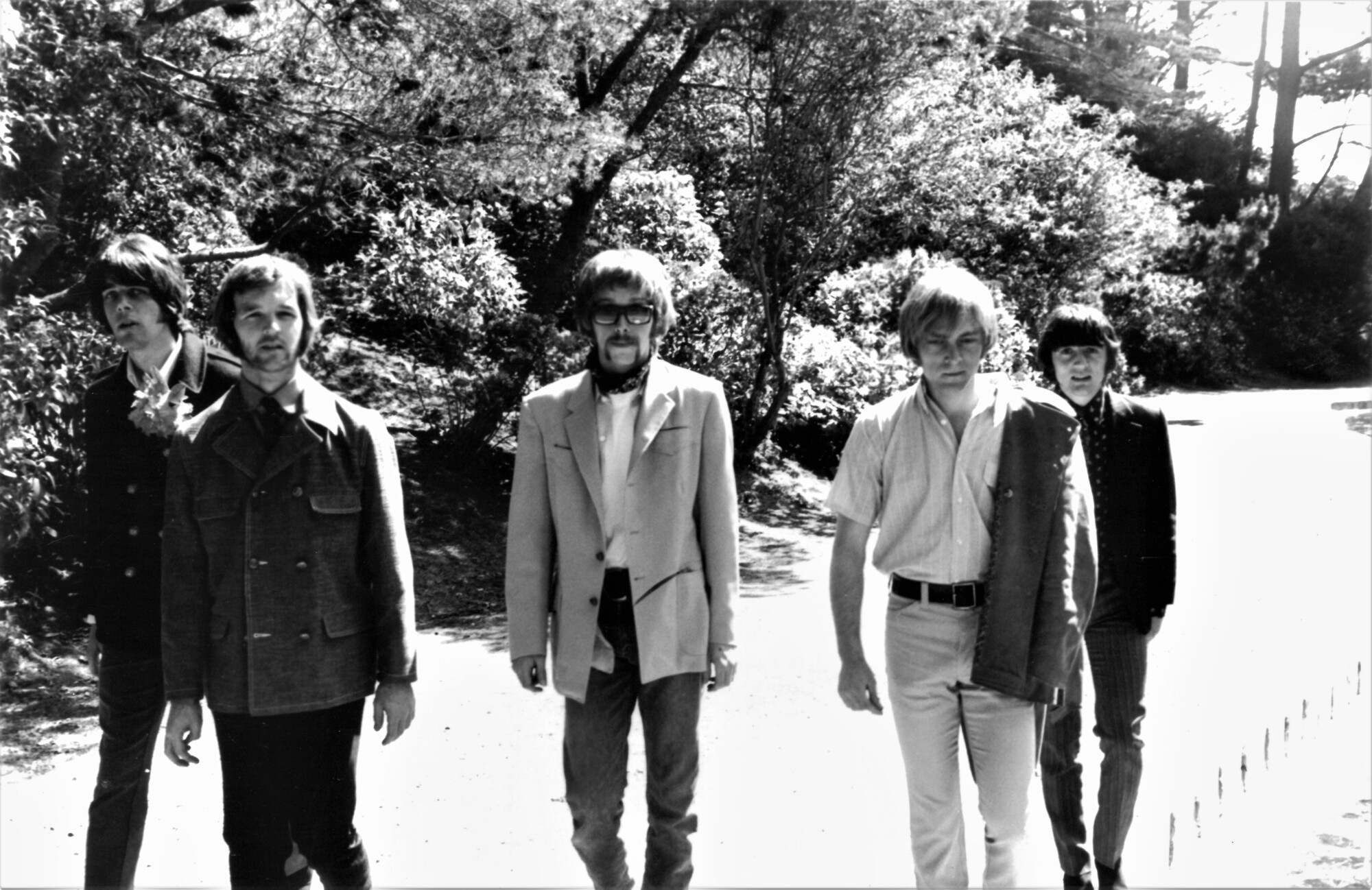
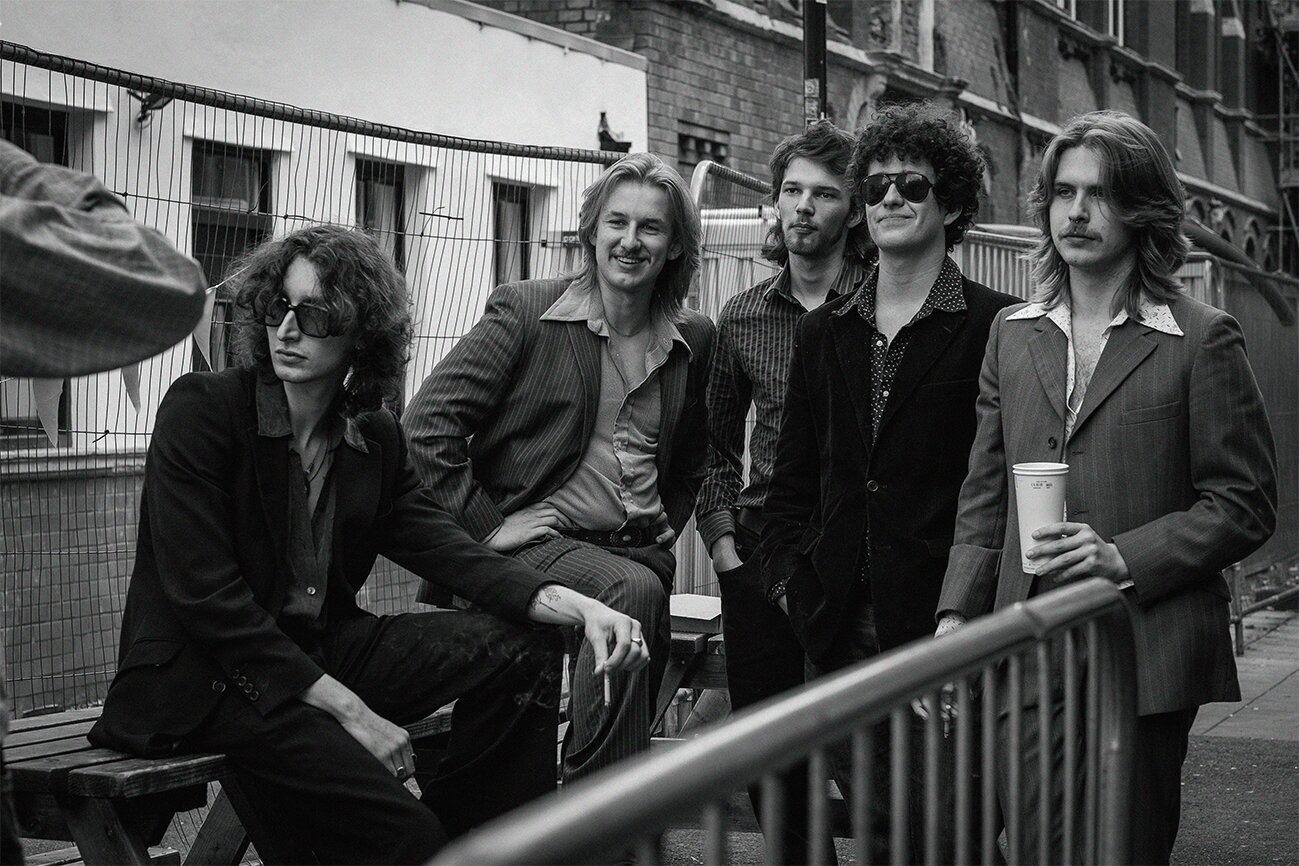
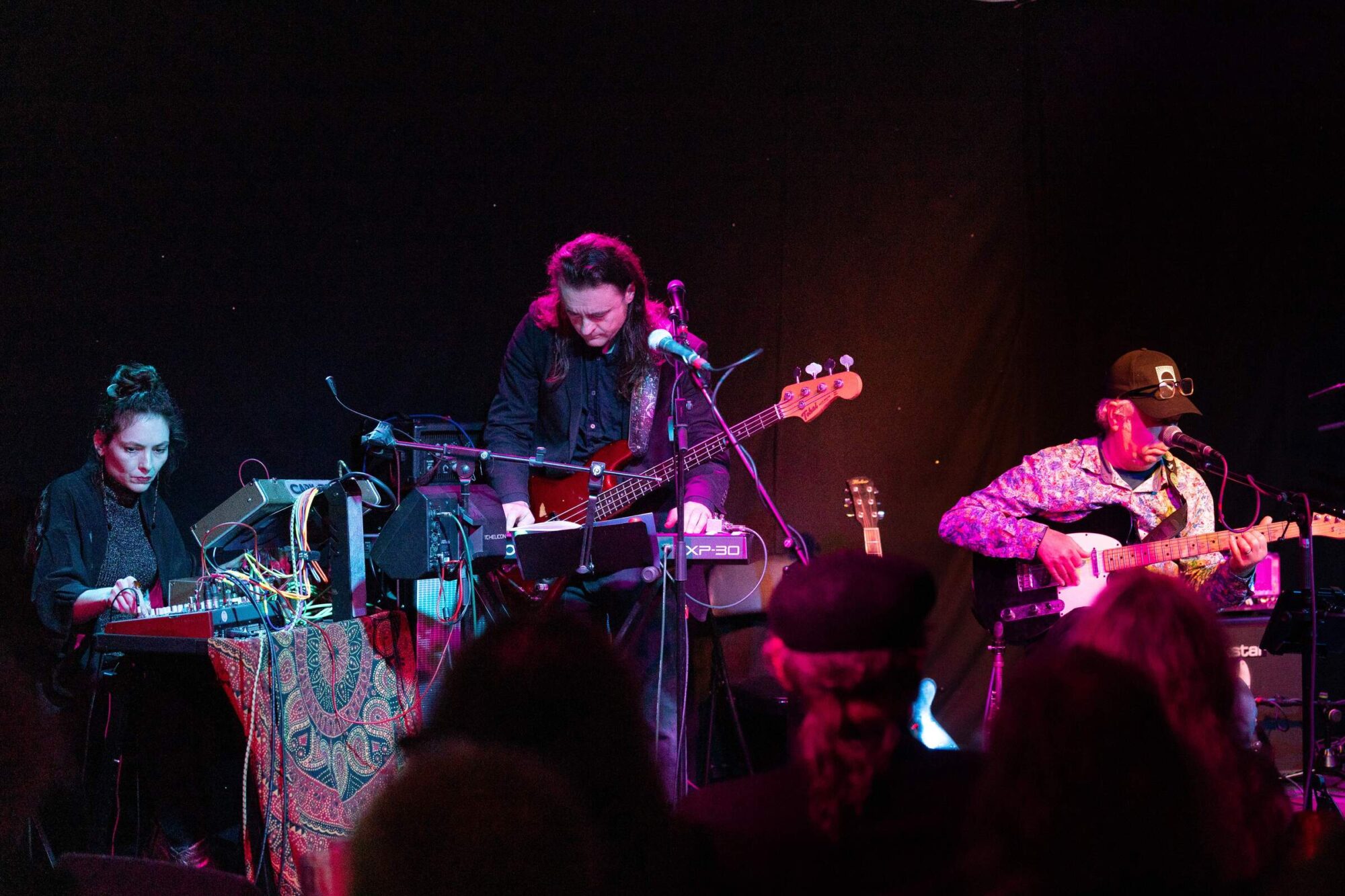
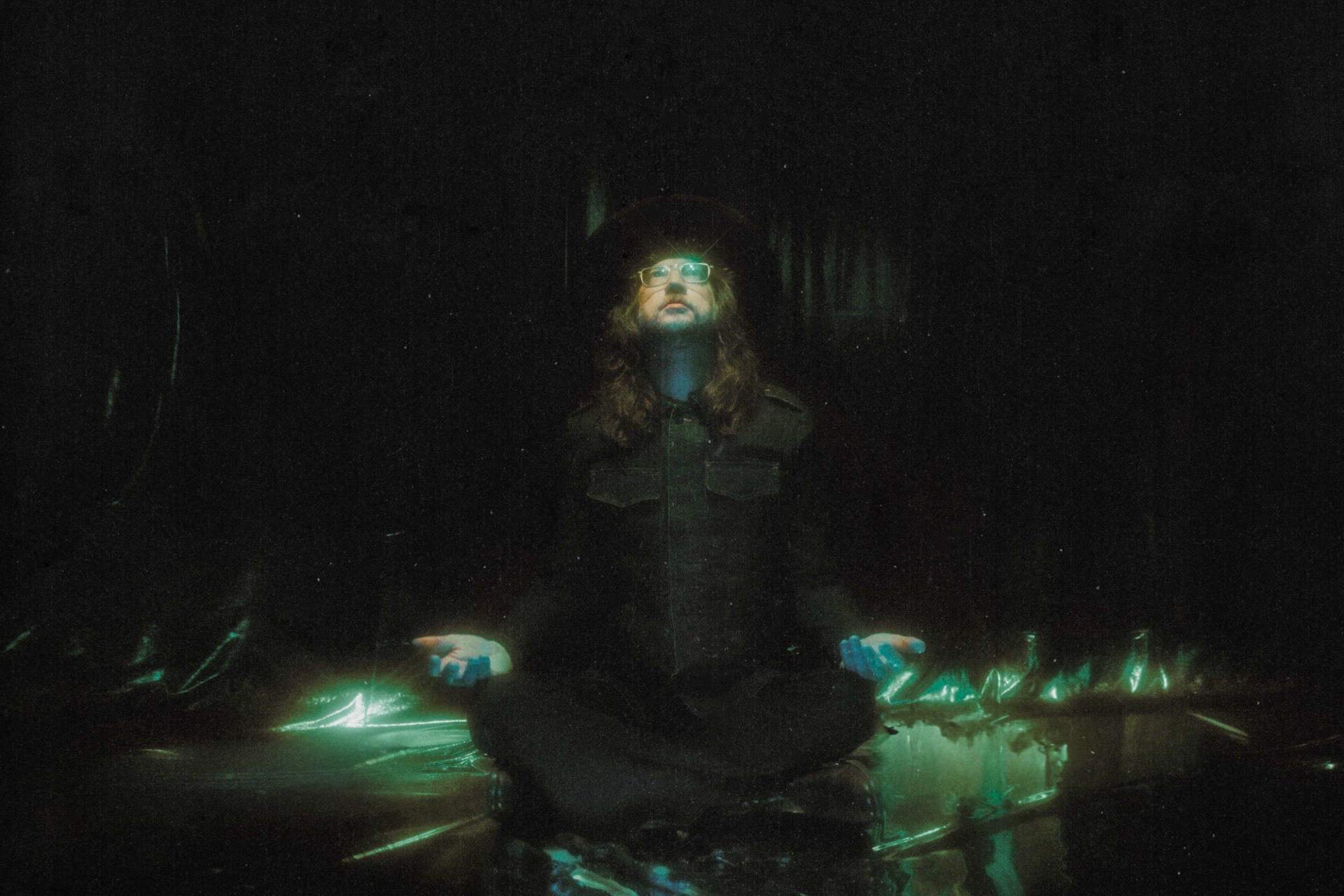
Nice to have another band member of the legendary band featured here. One of the finest interviews in the site; Peter Lewis shows that not only is he talented but also deep in relating his storied life and career.
Thank you, Peter. Moby Grape continues to bring joy to many people, I’m sure. It must seem a brief flickering of time in your rememberances now, but what’s on that record is truly timeless. People will be listening to it for decades into the future, I’m sure. Just think, it’s been over half a century already! If humanity is still here ina jundfred years, you can bet people will be playing the songs from “Moby Grape.” Truly timeless. …holds up better than any other Summer-of-Love albums (‘”69″ also holds up well, paricularly your tunes). Thank you.
Will hold Moby Grape in my memories and heart. Peter, Skippy and Bob……Jerry & Don!
The first link below is an article that I co-wrote that quotes Peter Lewis on Robert “Bob” Linkletter, details on their band, and touches on the direction that Robert Linkletter has been accused of taking with prolific 1960’s record producer Anthony J. Hilder as his producer/hypnotist and handler. Other articles on this same website research the previously accusations by Mae Brussell, former Woodland Hills resident Marie Vigil who wrote numerous letter to the FBI and LAPD police chiefs and the FAA accusing the Linkletters of being involved in the Zodiac operation, Charles Manson Family operation, RFK murder, DB Cooper and other hijackings, as well as the shooting of George Wallace, as well as earlier articles by accomplished researcher and author William Weston, concerning the connections and actual operations that Art Linkletter and his sons are accused of participating in with the mysterious Reeve Whitson and the counter-intelligence apparatus that intersected with Hollywood and the music industry for many years…. And to be clear, I am not directly accusing Art Linkletter, Robert Linkletter or Jack Linkletter of being involved in any murders, as I cannot prove that. I am merely analyzing the past accusations by other researchers… However, It is my opinion that they were all involved with intelligence operations that were sponsored by state and federal agencies, and depending on your political viewpoint, they were either hero’s or villain’s! Or perhaps a little bit of both?
https://zodiackilleridentified.com/2022/06/
https://zodiackilleridentified.com/2023/05/15/two-smart-birds/
https://zodiackilleridentified.com/2022/09/02/reeve-whitsons-brigadoon-dream-scheme/
https://zodiackilleridentified.com/2021/07/
https://zodiackilleridentified.com/2020/05/
https://zodiackilleridentified.com/2020/06/
https://zodiackilleridentified.com/2020/04/
https://zodiackilleridentified.com/2020/05/23/marie-vigil-letter-on-rfk-assassination/
https://zodiackilleridentified.com/2022/11/11/d-b-cooper-identified-letters-and-documents/
I heard 8:05 and Someday and everything changed for me.
I have had a glass or two of wine while reading Peter’s interview. Feeling quite emotional. Moby Grape have always been a part of my life since I shop lifted Wow in 1969. I have bought it again many times over to make amends. Cool recollection aboit David Crosby’s responsibility for the title. Peter was a magic component of that magic band. He is right to say the loss of Skippy & Bob was tragic. Also loved his reference to McGuinn’s genius. The greatest ever LA band (only competition the Buffalo Springfield) & the greatest ever San Francisco band! Love you Peter! So privileged to have found this!! xxx
Hoping you’ll give a concert at Québec Summer Festival next 2025 summer.
Great interview. Well done. I appreciate the patience Peter displayed in rehashing elements of his past; it added a lot to my understanding of the Grape foundation. I was struck by his Rick Nelson connection. The first time I heard Fall on You and, later, Goin’ On Down to Texas, I flashed on Rick Nelson. It’s a white boy sound with one foot in country, but has a firm rocking rhythm. Not showy, a little introverted, but still a clear declaration of youthful defiance.
That Peter & The Wolves pic sure looks like Rick & Dave Nelson. Were they band members?